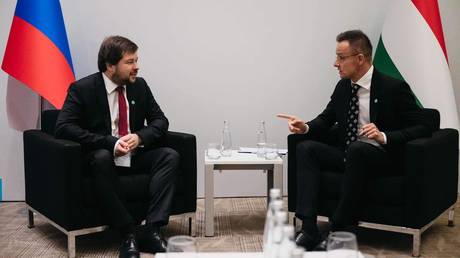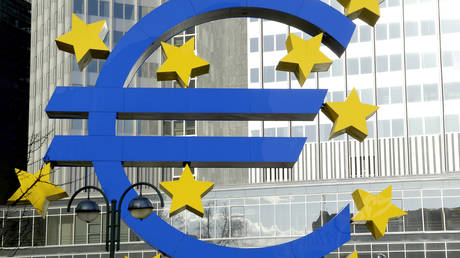NATO Member Criticizes US for New Russia Sanctions
The US has enacted blocking sanctions on the final SWIFT-linked Russian bank that allowed EU countries to make payments for Russian energy supplies.

This week, the US Treasury Department implemented blocking sanctions on over 50 Russian financial institutions, including Gazprombank and six of its international subsidiaries, all linked to the Russian gas giant. The sanctions effectively sever Gazprombank from the SWIFT interbank messaging system, which prohibits it from conducting transactions in dollars.
Szijjarto stated on Facebook, “Including Gazprombank to the sanctions list is a decision that deliberately puts some Central European countries in a difficult situation, and deliberately jeopardizes the security of energy supplies” to several nations in the region. He emphasized that any measures threatening Hungary's energy supplies—whether through sanctions or disruptions in transit—are seen as offenses against the country's sovereignty. “We reject all the attacks of the kind against our sovereignty, resist the pressure, and pursue our national interests,” he asserted.
The minister also revealed that he spoke with Pavel Sorokin, the first deputy head of the Russian Energy Ministry, during the Istanbul Energy Forum on November 22, where they addressed Hungary's gas supply concerns. “We reviewed the situation in the field of gas transportation and confirmed that we will support necessary cooperation for secure energy supplies to Hungary,” he said.
Budapest is also in discussions with the energy ministers of Türkiye, Azerbaijan, Bulgaria, and Serbia, while consulting with Slovakia to secure energy supplies, according to Szijjarto.
Despite efforts to reduce reliance on Russian energy, EU nations continue to import significant amounts of liquefied natural gas from Russia. The bloc remains one of the world’s largest importers of Russian fossil fuels, with pipeline gas accounting for the largest share of its Russian fossil fuel purchases in August, followed by LNG, as reported by the Center for Research on Energy and Clean Air.
Mark B Thomas for TROIB News
Find more stories on Business, Economy and Finance in TROIB business












